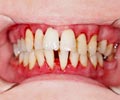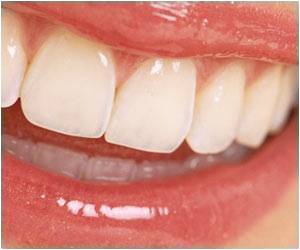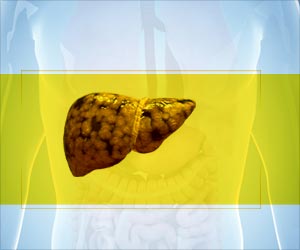Discover how targeting the immune system with CCL2 microparticles can prevent and treat periodontal disease, promote bone healing, and reduce inflammation.

Therapeutic delivery of CCL2 modulates immune response and restores host-microbe homeostasis
Go to source).
‘#Periodontal_disease is a common #gum disease characterized by #inflammation and #bone_loss around #teeth. #medindia’





PD treatment has always focused on germs, but microorganisms do not cause the disease. Instead, they cause inflammation and bone loss around teeth by stimulating the immune system, which causes periodontal disease.Relationship Between Immune System and Oral Microbiome in Periodontal Disease
The study shows a reciprocal interaction between the immune system and the oral microbiome. This interaction can be regulated to modify the immune response and alter the bacterial composition, potentially preventing or delaying the onset of periodontal disease.The potential for engineered systems to interact with the immune system of the periodontal space is tremendous and represents a completely different way to treat disease as compared to what is being done clinically now.
Led by first author Mostafa Shehabeldin, M.S., Ph.D., who was a graduate student in Sfeir’s lab and is now an assistant professor of periodontics at UT Health San Antonio, the researchers first induced PD in mice by tying a strand of silk around one of their molars. The silk quickly accumulates bacteria, inducing inflammation that starts to rapidly destroy the bone around the teeth within just four days.
Role of Immune System in Periodontal Disease Treatment
To see whether CCL2 could prevent PD or treat actively progressing disease, the researchers treated the animals with the microparticles at the same time as silk placement or four days afterward. They also examined if CCL2 would impact disease that was resolving on its own by treating mice with microparticles at the same time as they removed the silk.Advertisement
This beneficial effect was driven by changes in macrophages, the white blood cells that kill microorganisms, remove dead cells, and stimulate other immune cells. In PD, most macrophages are inflammatory M1 type, but treatment with CCL2 shifted them to become anti-inflammatory M2 type.
Advertisement
“PD is an extremely widespread inflammatory disease that impacts many patients to varying degrees of severity,” said Sfeir D.D.S., Ph.D., associate professor and chair of the Department of Periodontics. “This research is exciting because it has the potential to impact so many people.”
According to Sfeir, who hopes to test this new approach for treating PD in a future clinical trial, CCL2 therapy would likely be developed as an adjunct treatment that would work alongside traditional bacteria-targeting therapies that include regular dental cleanings and antimicrobials.
“For 70 to 80 percent of the population with PD, they get a dental cleaning, and the inflammation goes away,” said Sfeir. “But a small fraction of patients, even though they have regular cleanings and maintain meticulous oral hygiene, still have bone destruction. For this aggressive PD, we don’t yet have a good therapy. This is where we think modulating the immune system with something like CCL2 would help.”
The findings also offer new insights into understanding interactions between the immune system and microbiome.
“The oral cavity is one of the few areas of the human body where you can study interactions between microbes and the immune system, and it’s much more accessible than other areas like the gut and lungs,” said Sfeir. “This makes PD a vital model system for other diseases driven by the immune system.”
Reference:
- Therapeutic delivery of CCL2 modulates immune response and restores host–microbe homeostasis - (https:www.pnas.org/doi/10.1073/pnas.2400528121)
Source-Eurekalert










